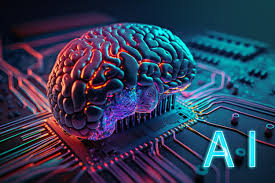**The Morals of Man-made reasoning: Exploring the Ethical Scene of a Groundbreaking Technology**
**The Morals of Man-made reasoning: Exploring the Ethical Scene of a Groundbreaking Technology**
Man-made reasoning (computer based intelligence) has quickly developed from a modern idea to a fundamental piece of our regular daily existences, molding enterprises, economies, and individual connections. As simulated intelligence frameworks keep on progressing in abilities, their broad go through brings significant moral worries. From issues connected with security and independence to predisposition and responsibility, the morals of man-made brainpower is a subject of developing significance.
### What is computer based intelligence Morals?
Computer based intelligence morals alludes to the arrangement of moral standards and rules that oversee the plan, improvement, organization, and utilization of artificial intelligence frameworks. It manages questions like:
- How could simulated intelligence be intended to regard common freedoms?
- Who is capable when artificial intelligence frameworks hurt?
- How might predisposition in man-made intelligence navigation be moderated?
These inquiries become more squeezing as man-made intelligence applications spread into regions like medical care, policing, driving, and employing processes — areas where choices altogether influence human lives.
### Key Moral Worries in artificial intelligence
1. **Bias and Fairness**
Perhaps of the most generally talked about issue in computer based intelligence morals is the issue of predisposition. Simulated intelligence frameworks are prepared on enormous datasets that reflect verifiable information and cultural examples. On the off chance that the information used to prepare man-made intelligence is one-sided — in light of race, orientation, financial status, or geology — then the simulated intelligence is probably going to sustain and try and enhance these predispositions.
For instance, man-made intelligence frameworks utilized in recruiting might burden specific gatherings assuming that the preparation information reflects one-sided employing practices of the past. Also, facial acknowledgment programming has been displayed to have higher blunder rates while distinguishing minorities, raising worries about racial profiling and segregation in policing.
Guaranteeing reasonableness in computer based intelligence frameworks requires cleaning and differentiating preparing information as well as implanting decency calculations that limit predisposition. In addition, constant checking and reviewing of man-made intelligence frameworks are important to guarantee that they are being applied decently.
2. **Privacy and Surveillance**
Man-made intelligence is much of the time powered by huge measures of individual information, raising critical security concerns. From web-based entertainment calculations following client conduct to facial acknowledgment advancements conveyed out in the open spaces, computer based intelligence frameworks can possibly disintegrate security at an extraordinary scale.
A key concern is the assortment of information without informed assent, frequently finished through hazy cycles. Organizations and states might utilize simulated intelligence to screen people, anticipate conduct, and impact direction, at times in manners that people are not even mindful of. This brings up moral issues about assent, straightforwardness, and the right to protection in the computerized age.
Moral man-made intelligence frameworks ought to focus on information minimization — gathering just the information essential for their capability — and utilize powerful security shields to safeguard delicate data. Furthermore, state run administrations ought to authorize and uphold guidelines to guarantee that simulated intelligence driven reconnaissance innovations are not abused.
3. **Autonomy and Human Rights**
Man-made intelligence can possibly essentially affect human independence, especially when it is utilized to go with choices recently made by people. Artificial intelligence driven dynamic in regions like medical services, money, and law enforcement can have serious ramifications for people, frequently without their insight or information.
For instance, in prescient policing, man-made intelligence frameworks dissect information to anticipate where violations are probably going to happen, prompting focused on policing in specific networks. Likewise, man-made intelligence can be utilized in the general set of laws to foresee whether an individual is probably going to perpetrate a wrongdoing later on, possibly impacting condemning choices. These applications raise worries about individual independence and the potential for man-made intelligence situation to encroach on common liberties.
Guaranteeing that simulated intelligence regards human independence implies enabling individuals to comprehend and challenge choices made by computer based intelligence frameworks. It likewise requires an emphasis on straightforwardness and reasonableness, guaranteeing that people impacted by computer based intelligence driven choices can perceive how those choices were made and challenge them if essential.
4. **Accountability and Responsibility**
One of the most difficult parts of man-made intelligence morals is figuring out who is capable when a simulated intelligence framework hurts. When computer based intelligence is engaged with choices that lead to unfortunate results —, for example, a self-driving vehicle causing a mishap or a computer based intelligence based clinical conclusion prompting inaccurate treatment — who is at fault? The designer, the client, or the actual framework?
This "responsibility hole" is a basic moral issue. Conventional lawful structures are in many cases unfit to deal with the intricacies of man-made intelligence, where choices are made through calculations that are challenging to decipher. Laying out clear lines of liability is fundamental for guaranteeing that damage brought about by computer based intelligence frameworks can be tended to and helped.
One way to deal with resolving this issue is through the idea of **"algorithmic accountability,"** where designers and associations that convey computer based intelligence frameworks are considered answerable for the results of their frameworks. Administrative systems, like the EU's Overall Information Assurance Guideline (GDPR), as of now force some degree of responsibility by expecting organizations to make sense of and legitimize simulated intelligence driven choices




Comments